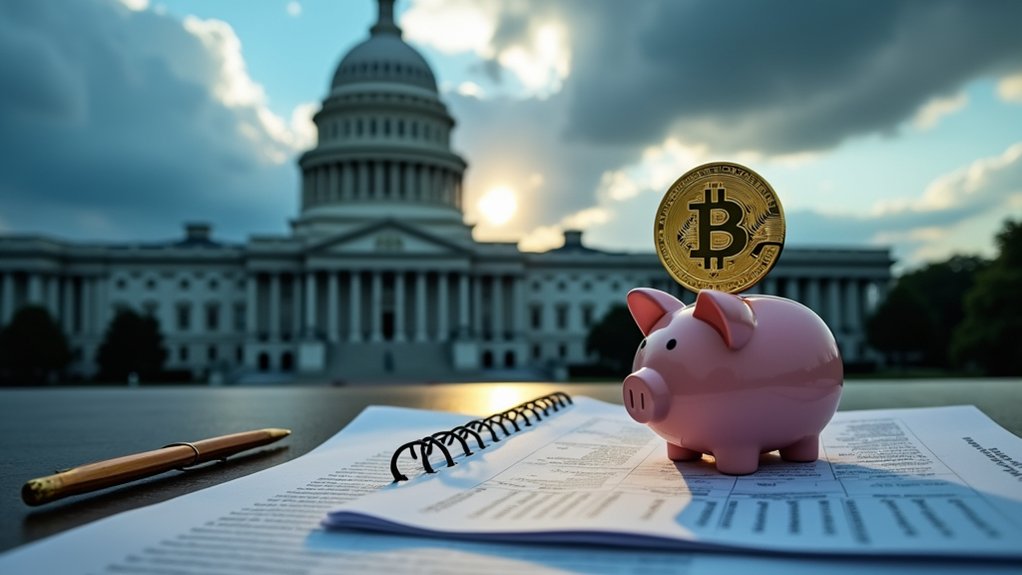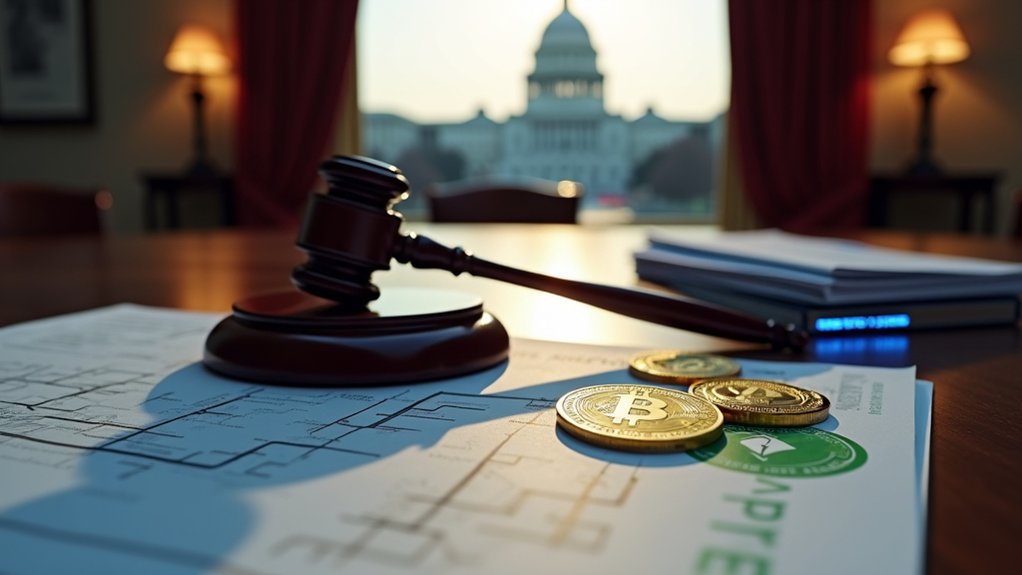Revolution knocks at North Carolina‘s door as state lawmakers push bold new crypto legislation that could fundamentally transform how pension money is managed.
HB506 and SB709, introduced in March 2025, would allow up to 5% of the state’s massive $129 billion pension funds to be invested in cryptocurrency. That’s $6.45 billion. Let that sink in.
A legislative revolution brewing in North Carolina could funnel billions of retirement dollars into crypto’s wild frontier.
The bills would create an independent North Carolina Investment Authority to handle these digital assets—everything from Bitcoin to NFTs. No market cap restrictions. No kidding. They’ll decide what to buy, how much, and when. The only real requirement? Secure custody solutions. Because nobody wants to lose billions due to a forgotten password.
This isn’t happening in a vacuum. Across America, 41 Bitcoin reserve bills have been introduced in 23 states, with 35 still being considered. Oklahoma, Kentucky, Indiana, Kansas, Florida—they’re all jumping on the crypto bandwagon. FOMO isn’t just for college kids anymore.
North Carolina is doubling down with Senate Bill 327, which proposes allocating up to 10% of public funds to Bitcoin specifically. Multi-signature cold storage would be required. Fancy.
State Treasurer Brad Briner recently discussed these potential pension system investments with the SEANC Retiree Council, highlighting the significance of this financial shift.
Supporters are singing the usual crypto gospel: higher returns, inflation hedge, innovation. Critics? They’re pointing at the wildly volatile market and murky regulations. The State Employees Association isn’t thrilled. Would you be if your retirement depended on it?
Bitcoin’s current market cap of $1.72 trillion showcases its dominant position in the crypto ecosystem that state pension funds are eyeing.
Globally, this isn’t unprecedented. Australian pension funds have already put $664 million into crypto. Norway’s Government Pension Fund has dipped its toes in indirectly. Even the U.S. President signed an order for a Strategic Bitcoin Reserve.
The trillion-dollar question remains: Is North Carolina making a brilliant strategic move or gambling with teachers’ and firefighters’ futures?
With no long-term holding requirements specified, this could be a short-term fling or a decades-long commitment. State lawmakers seem determined to find out. Retirees might not have a choice but to come along for the ride.
The fixed limit of 21 million bitcoins creates a scarcity that some pension managers view as protection against inflation in uncertain economic times.





